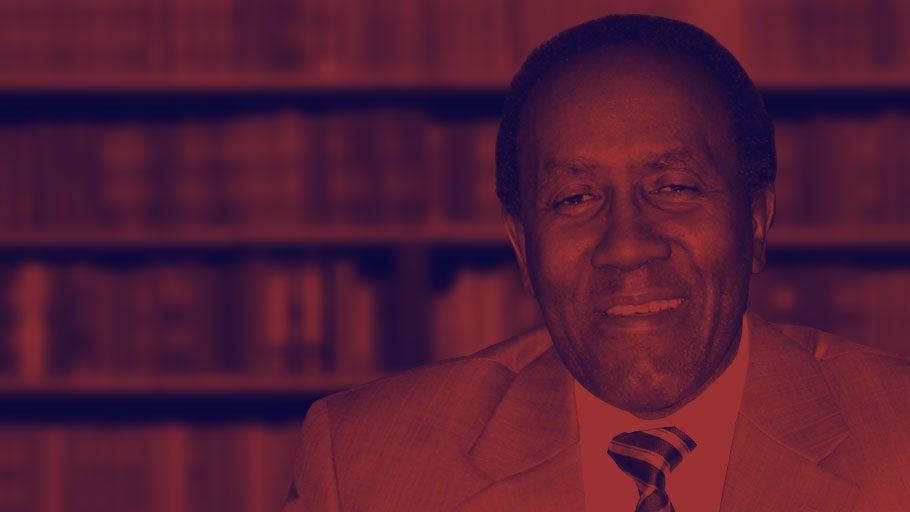By Basil Wilson For Carib News 6/26/16
Is London Bridge falling down? British voters exercised their self-determination rights to make their abrupt exit from the European Union. Those who voted to leave amassed fifty-two percent of the vote, and those who voted to remain, registered forty-eight percent. The vote made it clear that a majority of the British people bought the argument of the “Leave” faction spearheaded by Boris Johnson, the former mayor of London.
It is ironic that Johnson, who is the likely successor to Prime Minister David Cameron, failed to persuade a majority of London residents to support the Brexit movement. Londoners, the people of Scotland, Northern Ireland and young professionals voted overwhelmingly to remain in the Union. The blue collar workers, the poorly educated, the elderly and those living in the Midlands and Northern England voted to leave the Union.
The “Leave” movement in victory seems unsure of themselves. They may have promised more than they can deliver. Their argument was that Britain was being stifled by the bureaucracy in Brussels and recapturing British sovereignty is what was critical. The “Leavers” made the case that what Britain contributed to the EU budget could be spent on the National Health Services. That it was in the interest of the British people to be able to determine an immigration policy vis-a-vis who and when foreigners could settle in the United Kingdom. In recent years, Britain had seen an influx of immigrants from Central and Eastern Europe. The presumption was that the influx of immigrants was taking jobs from British workers and was instrumental in suppressing wages.
For most of its existence, Britain has functioned as a homogeneous society. As the British Empire collapsed, some of the former colonial subjects found their way to the Kingdom. But apparently the open borders with the European Union set off alarm bells throughout the British Isles. The emotional appeal of reasserting sovereignty and preserving British identity resonated with the elderly and the not-so-well educated who have had to endure stagnant wages for decades, growing inequality and the invoking of austerity measures in light of the financial meltdown of 2008.
The leading economists tried to dismiss the claims of the Brexit movement. Scholars and politicians made the case that Britain benefited from the free trade zone of the common European market and that withdrawal would trigger serious economic consequences. The warnings were not hyperbole and as soon as the vote to exit was tabulated on Friday, June 24, 2016, world markets tumbled and are still reeling from the British decision to withdraw from their 40 year relationship with the European Union.
Boris Johnson is making the case that Britain will still have access to EU markets but that is not for Johnson to decide. That will be the prerogative of the 27 remaining members of the European Union. Britain will be excluded from that momentous decision.
The financial market crisis has also precipitated a political crisis. David Cameron, the leader of the Conservative Party and British Prime Minister has announced that he will step down in October. The referendum initiated by David Cameron has ended with his political demise. The leader of the British Labour Party, Jeremy Corbyn is facing an internal revolt of Labour Party parliamentarians who feel his lukewarm support for remaining in the EU showed weak leadership and are bent on forcing him out.
Nicola Sturgeon, First Minister for Scotland, is adamant about staying in the European Union as the Scottish people voted 62 to 38 percent to remain in the European Union. The possibility of a new Scottish referendum to alight from the United Kingdom is a strong possibility.
There was a lack of clarity as to how to proceed once Britain had voted to leave the European Union. Britain’s pending departure has not only created disarray inside of Britain but outside of Britain. The Syrian refugee crisis has had a seismic impact on the power configuration of European countries like Austria, France, Denmark, Hungary, et al. All these countries have burgeoning fascist-oriented movements.
The presumption was that National Socialism was buried with the collapse of Nazi Germany but in the dialectics of globalization, National Socialism has been resurrected and is now a force in many European capitals.
There is very little evidence that globalization has had a similar impact on Asian countries, perhaps having much to do with economic growth in Asian countries. But in Middle Eastern countries like Saudi Arabia, Afghanistan, Iraq, Iran, Syria, Libya and Egypt, globalization has triggered a cultural and religious crisis. Islam is experiencing difficulty adjusting to the juggernaut of secularism and materialism. ISIS and Al Qaeda represent the extreme Arab response to the hegemony of globalization.
Although America remains the chief architect of globalization, the political rise of xenophobic and protectionist sentiment, as exemplified by Donald Trump’s candidacy, reflects the challenge of globalization even in an advanced country like the United States. There is no question that Trump’s fascist-like muddled ideology constitutes a real danger to American democracy. But Trump’s obnoxious narcissism makes him a potent candidate for Republican primaries but an unappealing candidate in a general election. His penurious knowledge of world affairs and his limited intellectual capabilities ensure that he will alienate the general election voter.
Nonetheless, Britain’s exit from the European Union, the rise of fascism in Europe and the surfacing of “Trumpism” in America is a clear sign that laissez-faire globalization leaves behind too many in the body-politic and threatens the future of globalization.
The present Chairman of the Federal Reserve, America’s Central Bank, Janet Yellin, wrote years ago that global trade produced winners and losers. And if globalization is to have staying power, it has to find ways to bring more workers into the winner’s circle. Profits and productivity gains cannot simply go to the one percent of fat cats. The fair distribution of wealth is indispensable to the well being of democracy in all parts of the world.















